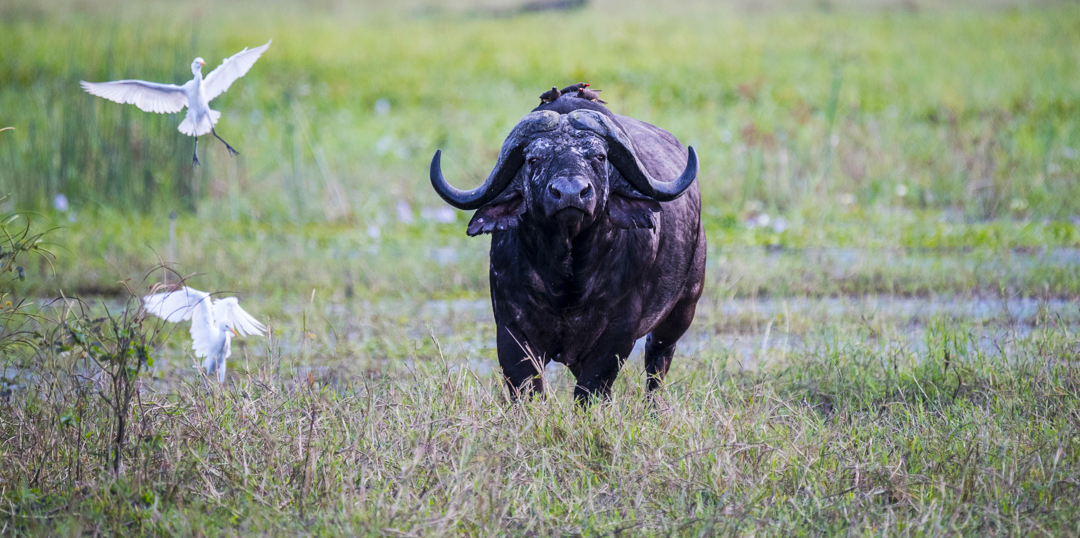
Care for an exciting fact to brighten up your next date/dinner/funeral? No worries amigo, I got you covered! Did you know that statistically far more Belgian kids have seen a live elephant compared to their buddies in Malawi – a country that actually has them roaming free? While we just have to get to a zoo to see one pick its nose out of sheer boredom – physically impossible for elephants btw – lots of Malawians never get to their own reserves. Too expensive, too far away or no way to get there. This is slightly tragic for several reasons. 1. The parks are wonderful and people should be proud of them. 2. When you don’t get the chance to get to know something, you won’t learn to appreciate its value either. This of course complicates the conservation effort. As a privileged (and girls: world famous) photographer, I did get the chance to capture Malawi’s natural beauty through my extensive collection of lenses. As you can see I liked it a lot. I also saw a shitload of different animals pass by in the three weeks I was there. Some of them – it has to be said – turned out to be total assholes. A review seems overdue.
“Did you know that statistically far more Belgian kids have seen a live elephant compared to their buddies in Malawi – a country that actually has them roaming free?”
Quick note: here ends the factual part of this story. Don’t sue me PETA, I’m just kidding. Also, stop demonising Steve Irwin for gently wrestling some crocs while you mass-murder your own shelter animals by the thousands. Not cool bros.
1. The Impala (aepyceros melampus)
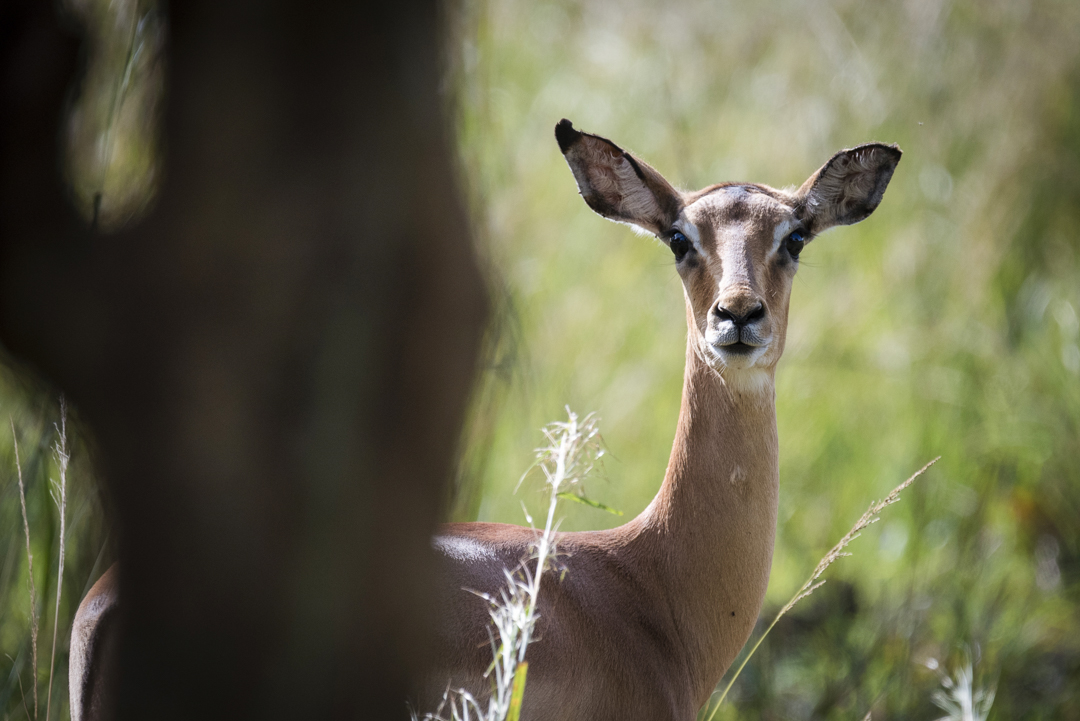
The impala is probably the first animal you’ll encounter in any park in Southern Africa, and the first time this is a wondrous occasion. They’re graceful, elegant antelopes with big dark eyes and a streamlined coat of fur. Most of the times they keep staring at the jeep in mortal fear just long enough to take a decent picture as well – so there’s that. “Look, there’s another one!” you’ll soon yell enthusiastically, and you feel like the luckiest person alive. After passing a whole herd just fifteen minutes later it will start to dawn on you: there’s a ridiculous amount of impala in Malawi. As from day two your guide will start driving right past them without stopping, and on day three you’ll frantically start chasing them away with hand gestures because they’re grazing right in front of a far more interesting animal you actually want to see. Away with you impala, you’re bland and nobody loves you! (but you are very tasty though)
2. The Hippo (hippopotamus amphibius)
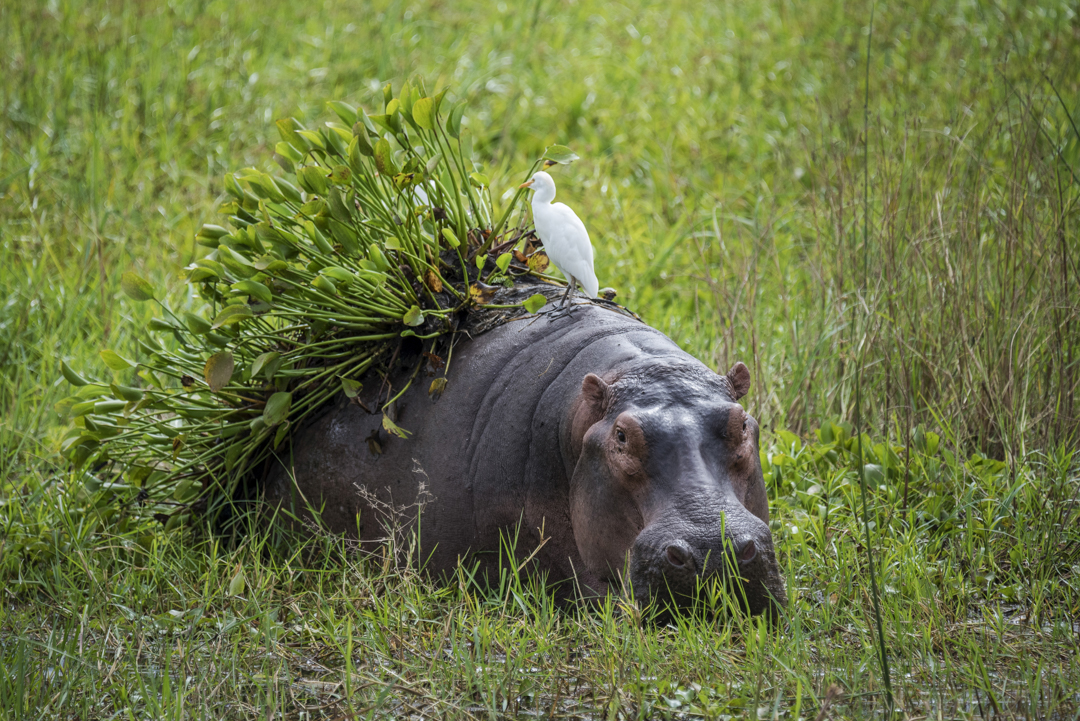
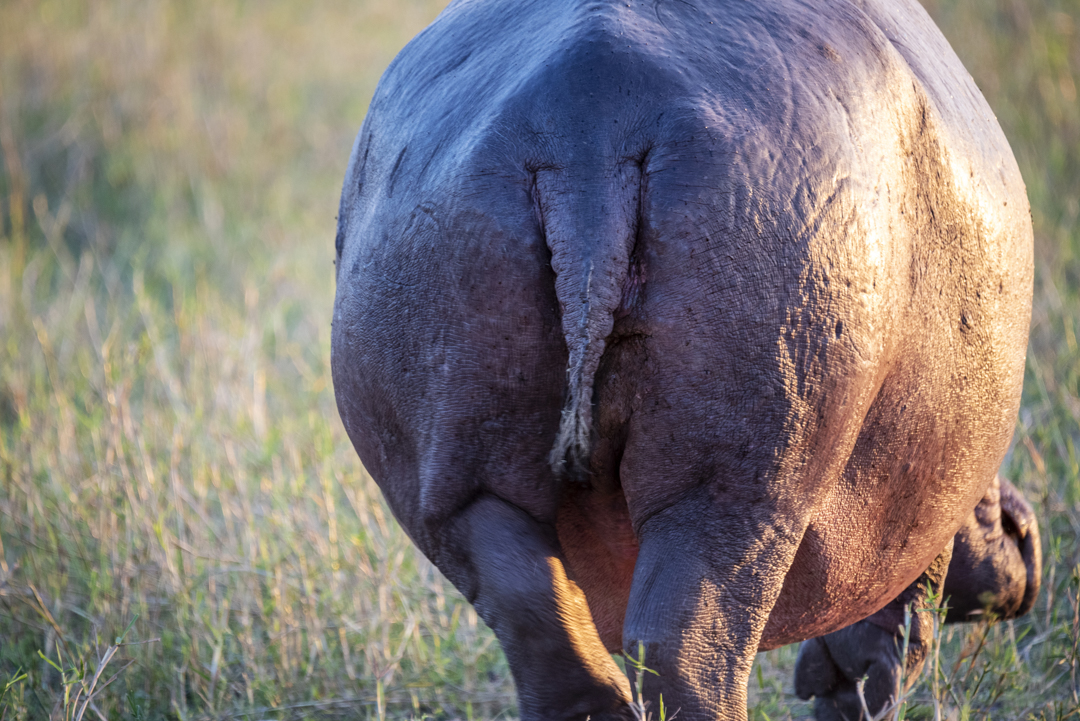
Hippos suffer from impala syndrome as well, especially in Liwonde National Park: you’ll literally see a bunch of them floating in the river every couple of feet. But because they’re fat and hilarious, you’ll keep looking at them anyway. Hippos – “Nile horses” in Dutch: we’re special people – are extremely dangerous and can be surprisingly quick and explosive. They’re like that one chubby kid from middle school who – after years of torment – suddenly snapped and punched his bully straight in the face with a sledgehammer fist propelled by 250 pounds of tears and fat. Hippos are territorial creatures. They mark their space by flicking tons of dirty diarrhoea through the air with their plump little tails. Disgustang. If you cross their turf without asking, they’ll happily snap your back with their insanely huge cavernous mouths. This will happen to fully grown Nile crocodiles as well – hippos do not fuck around when it comes to their personal space. To make them more annoying still, they all come out of the water at night to munch grass all around your tent. Doing this they make louder and wetter chewing noises than a bus of elderly people after a no-teeth excursion to the toffee factory. Hippos have no sense of etiquette.
“To make them more annoying still, hippos come out of the water at night to munch grass all around your tent. Doing this they make louder and wetter chewing noises than a bus of elderly people after a no-teeth excursion to the toffee factory. Hippos have no sense of etiquette.”
3. The Elephant (loxodonta africana)
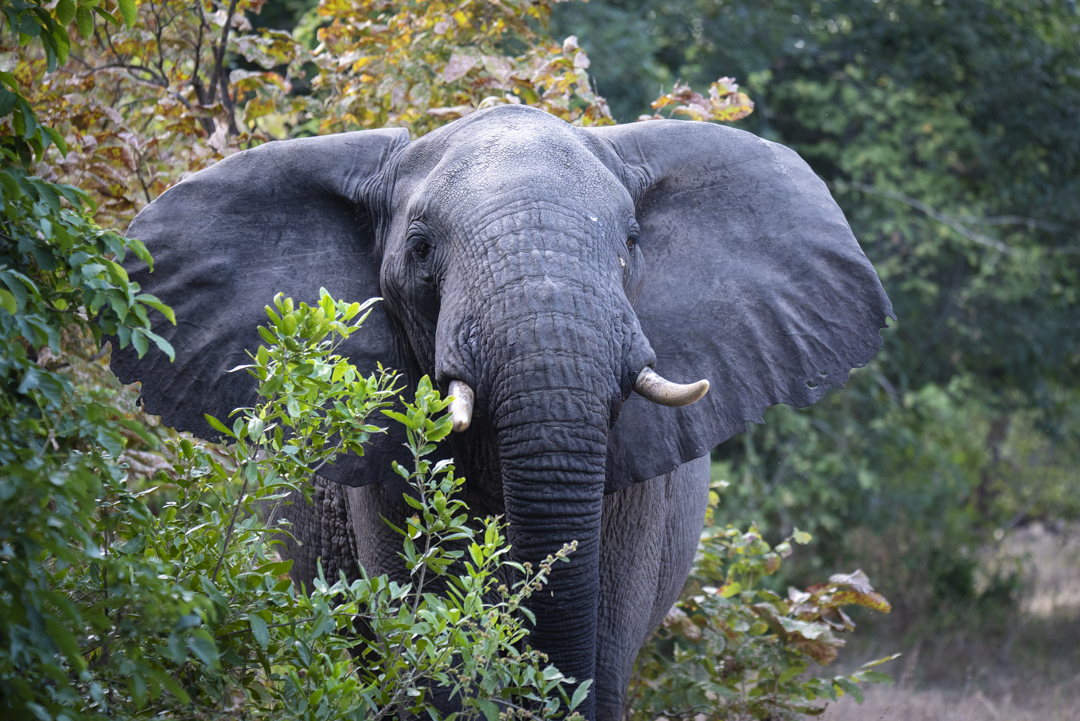
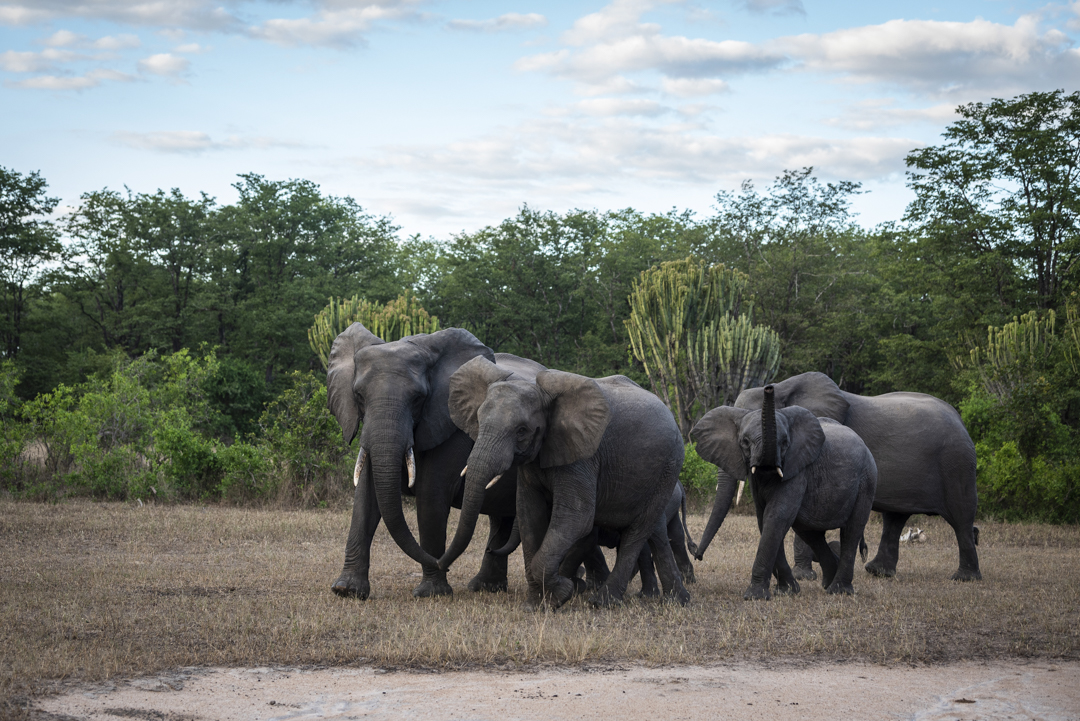
Both Malawian parks I visited are home to hundreds of elephants. One would think you’d easily get to see some of them: they weigh up to six tons, are absolutely gigantic and have a tendency to loudly trumpet whenever the wind moves a blade of grass. Don’t count on it when you’re visiting outside the dry season buddy. Elephants are fat grey ninjas who will remain invisible for days, just to suddenly pop up right in front of you and charge your jeep. Most of the time they’re just playing and they will fuck off after flapping their ears a bit, but sometimes it goes horribly wrong. A week before I arrived a British soldier was trampled while training the local rangers, and in India there are herds who execute coordinated vengeance attacks on local villages after one of them got shot. They sneak into the village at night, communicating in sounds too low for us to hear, and will mercilessly flatten all of the huts once in position. Mob hits in Dumbo Corleone style. (I’ll get me coat)
4. The Yellow Baboon (papio cynocephalus)
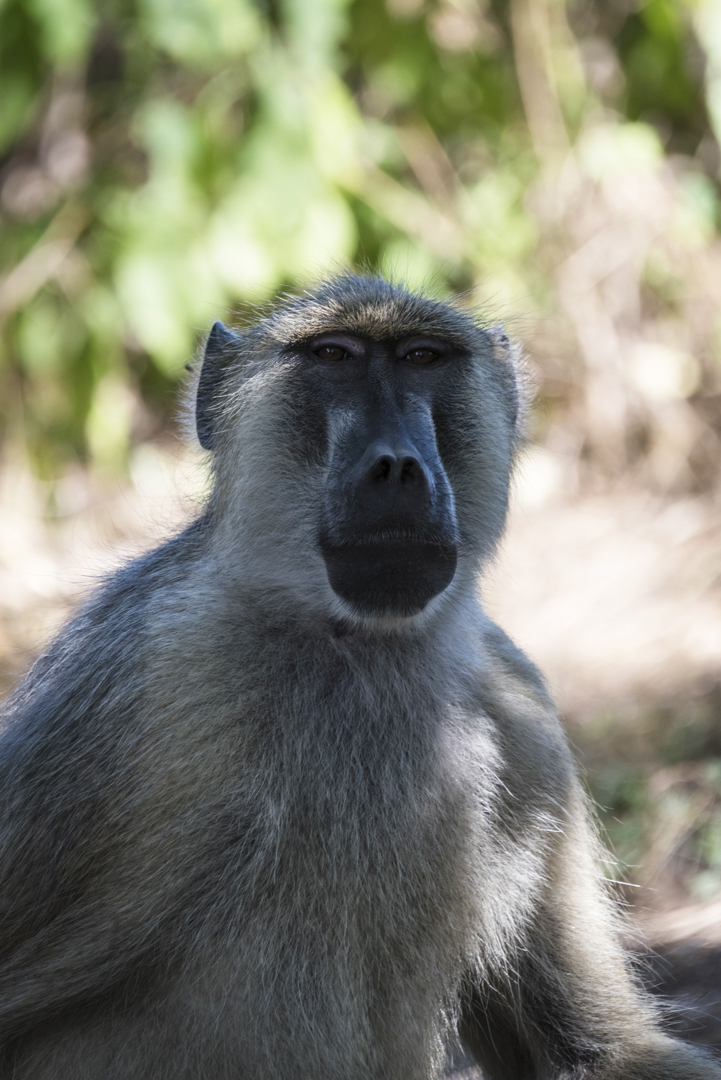
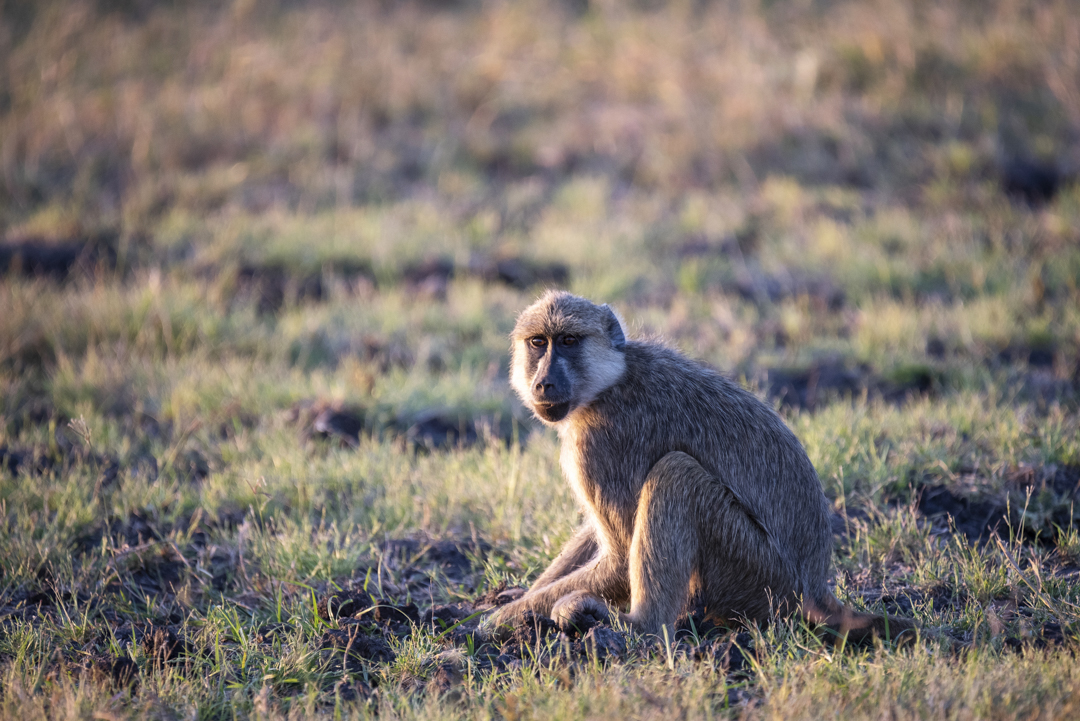
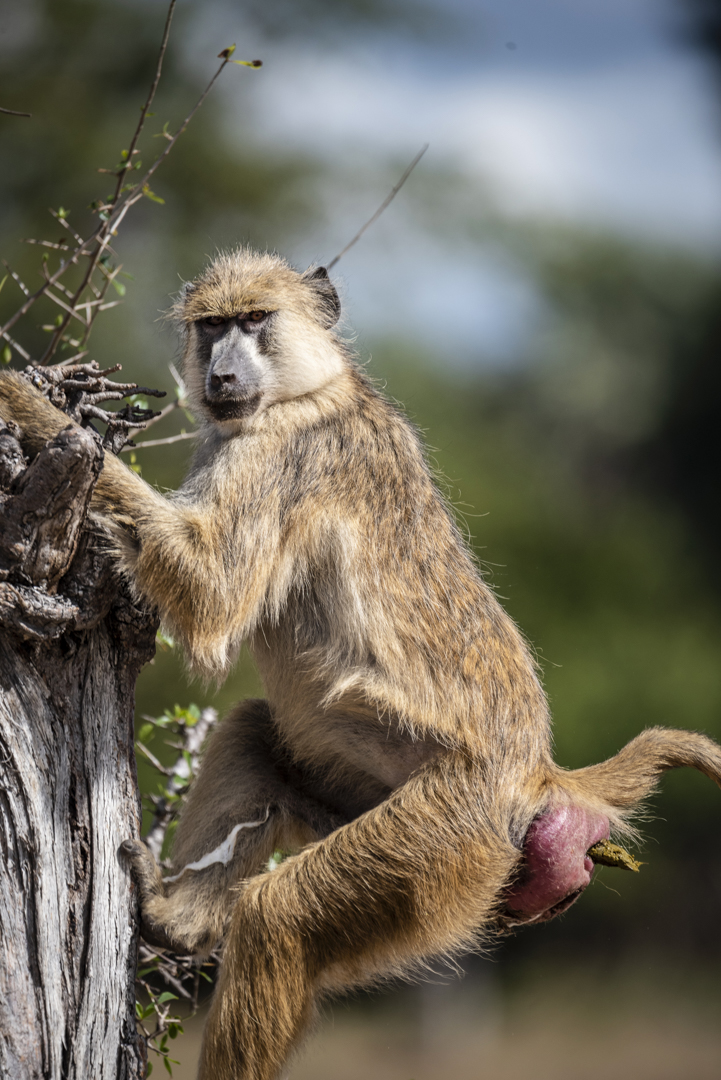
Out of all animals monkeys are our closest evolutionary relatives, which immediately explains why they’re such assholes. Yellow baboons are the largest and most dangerous monkey species in Malawi. They all own a shiny set of four inch fangs: perfect tools for instantaneously biting your face off with if they feel like it (they feel like it). You’ll see these bastards everywhere, both inside and outside the parks. The dominant males can smell the difference between men and women (the difference is Axe body spray btw: these are smart animals), and like their intellectual equal Donald Trump, they won’t allow themselves to be intimidated by the latter. A man can chase a baboon away by acting aggressively; a woman should not even try.
“Out of all animals monkeys are our closest evolutionary relatives, which immediately explains why they’re such assholes.”
Mvuu Lodge had a serious baboon problem around their kitchen. They solved the matter by shipping a dozen males to the other side of the river. An hour later one of them was already back, peeking through the kitchen window. He had lazily crossed hundreds of meters of crocodile infested water to get back to his all you can eat buffet. No fucks were given that day. These days Chambari – the local word for plate because he nicks so many of them – is still hanging out in the camp. With a look of total contempt he’ll keep an eye on you from a distance, while he eats the dinner you’ve been craving all day.
5. The Wildebeest (connochaetes taurinus)
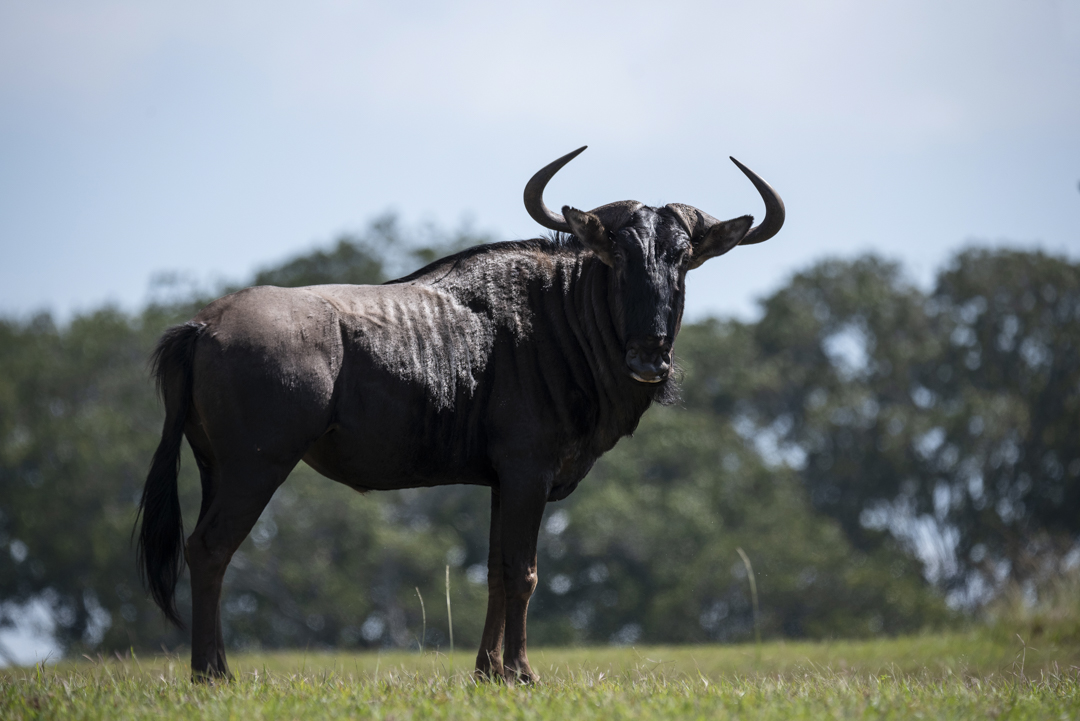
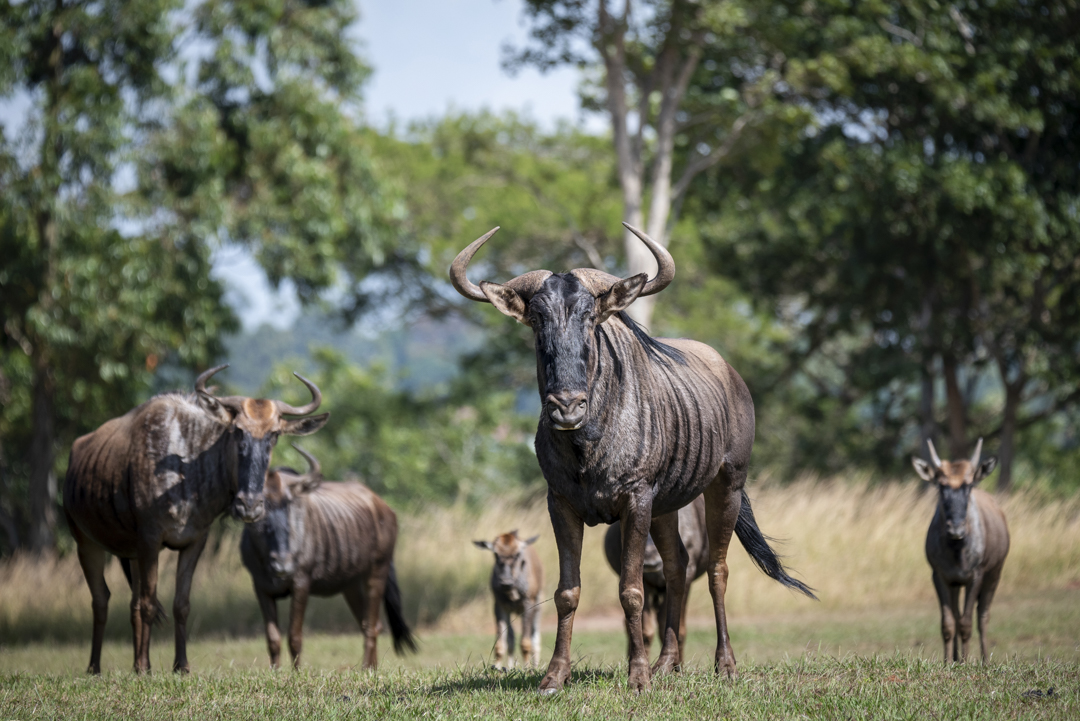
Wildebeest – in Malawi they only have them in Game Haven – are the absolute morons of the African Savannah. They have slender bodies with thin legs, but carry around a massive dumb looking head with tiny beady eyes. They move in giant herds, and follow each other blindly without ever finding out who or what’s in charge. When one of them runs off a cliff, hundreds will happily skip after it before the smartest of the bunch figures out something is wrong. Wildebeest communicate exclusively in annoying little grunts that have no meaning whatsoever – “Gnu, gnu”: they were named after them – and have the memory of a goldfish with a drinking problem. There are countless stories of gnus getting chased by a lion jumping out of a bush and narrowly escaping. After running to safety they will immediately forget lions exist, let alone that one was trying to eat them a moment ago. Five minutes later they will walk past the same bush without a care in the world, just to get killed by the same, completely baffled lion. Hilarious creatures, lovingly called “Zero-Brains” by the Africans.
“Wildebeest communicate exclusively in annoying little grunts that have no meaning whatsoever, and have the memory of a goldfish with a drinking problem.”
Bonus: The Warthog (pacochoerus africanus)
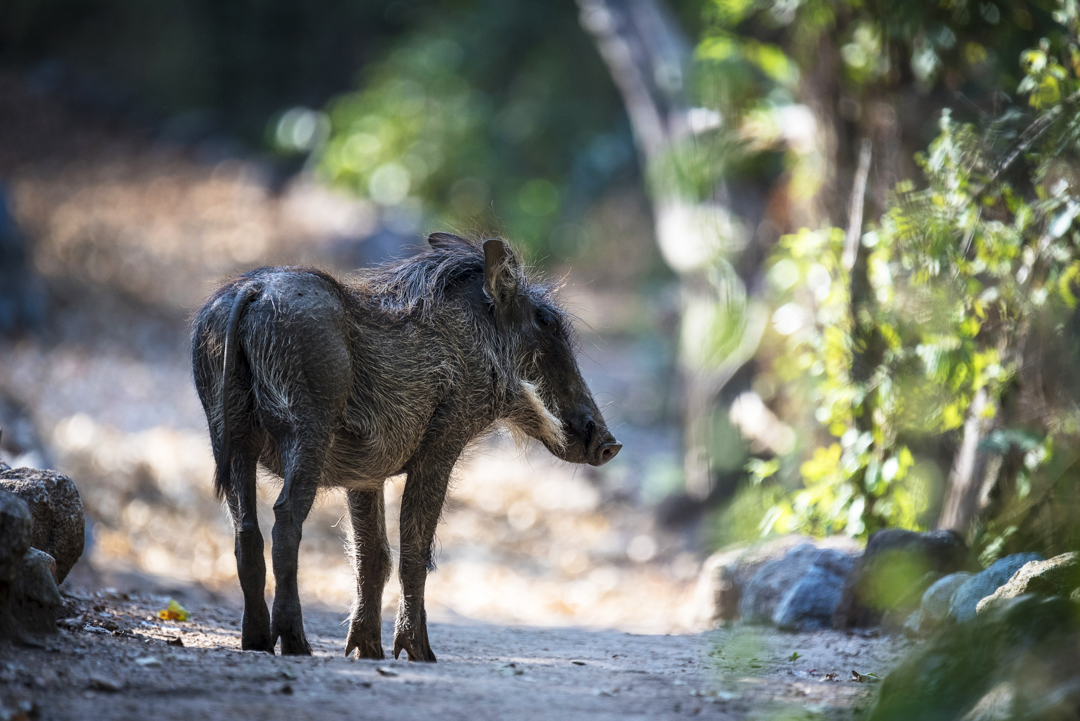
They cool.
And so ends my expertly researched lecture on the African fauna I saw in Malawi. Do you have a favourite animal too? Do you think wildebeest are not stupid but just misunderstood? Got eaten by a lion one day and want to share your story? Please don’t hesitate to put your comments below. My first – slightly more serious – article on Malawi can be read here.






















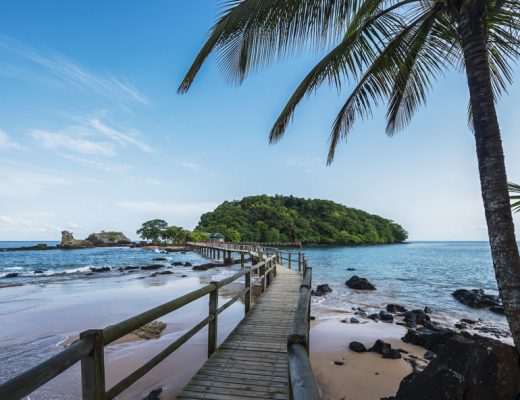
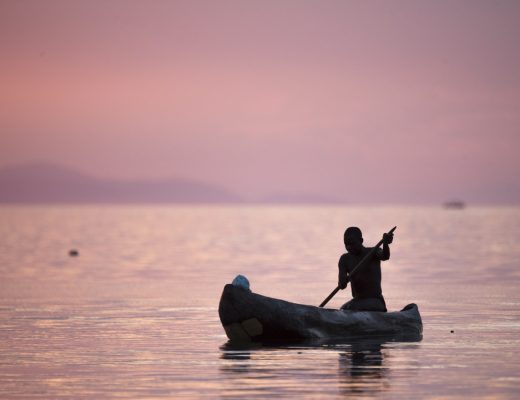
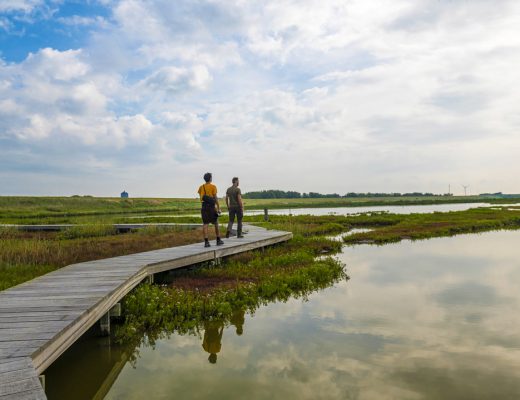

12 Comments
Judy
July 12, 2019 at 8:19 amBrilliant!!!!! You got their characters spot on!! Love it
Jonathan Ramael
July 12, 2019 at 9:00 amThank you so much, I did my best! :p
Claudia
July 12, 2019 at 10:57 amI’m laughing so hard that tears run down my face, excellent!
Jonathan Ramael
July 12, 2019 at 11:20 amThanks! ^^
Iain Massie
July 12, 2019 at 3:06 pmPretty funny and quite true, I lived in Malawi for 5 years and regularly went to the parks, in Mvuu Camp (not Lodge) the Vervets were the raiders. One morning I turned around about to head off to my drive and there was a Vervet, face in the sugar bowl, looked up, head covered in sugar and scampered before anyone could react . On a sadder note I was there the week before the British soldier was trampled and saw them several times during my stay.
Jonathan Ramael
July 12, 2019 at 3:19 pmThe vervets are very clever indeed around Mvuu, but because they’re basically harmless I didn’t mention them. I was eating breakfast one day, talking to the waiter. I turned around and one was standing on the table, my sandwich in his little hands, staring me right in the face. I literally spanked the monkey with my camera lens out of reflex.
The ranger story just shows that you’re always taking a (small) risk when staying in one of the camps. One night in Kuthengo an elephant walked right past the entrance of my tent when I was walking back to it after dinner.
Maggie Mukwenha
July 12, 2019 at 8:38 pmAbsolutely spot on, hilarious and so true! Brilliantly described, I can’t wait for my next safari.
Jonathan Ramael
July 12, 2019 at 9:10 pmThank you Maggy, enjoy your next one! 🙂
Janhavi
July 13, 2019 at 10:58 amAbsolutely loved the blog. Can relate it so well!
Jonathan Ramael
July 13, 2019 at 11:30 amThanks man!
Hope
July 15, 2019 at 6:58 pmNice to read your article, but when are you visiting Malawi again more especially Liwonde national park…?
What type of lens were you using
Jonathan Ramael
July 15, 2019 at 7:51 pmI was there this May, don’t know when I’m going to get back there. 🙂
I was using a 600 mm for most of the animal shots, and a 14-24 mm for most of the landscape shots. 🙂